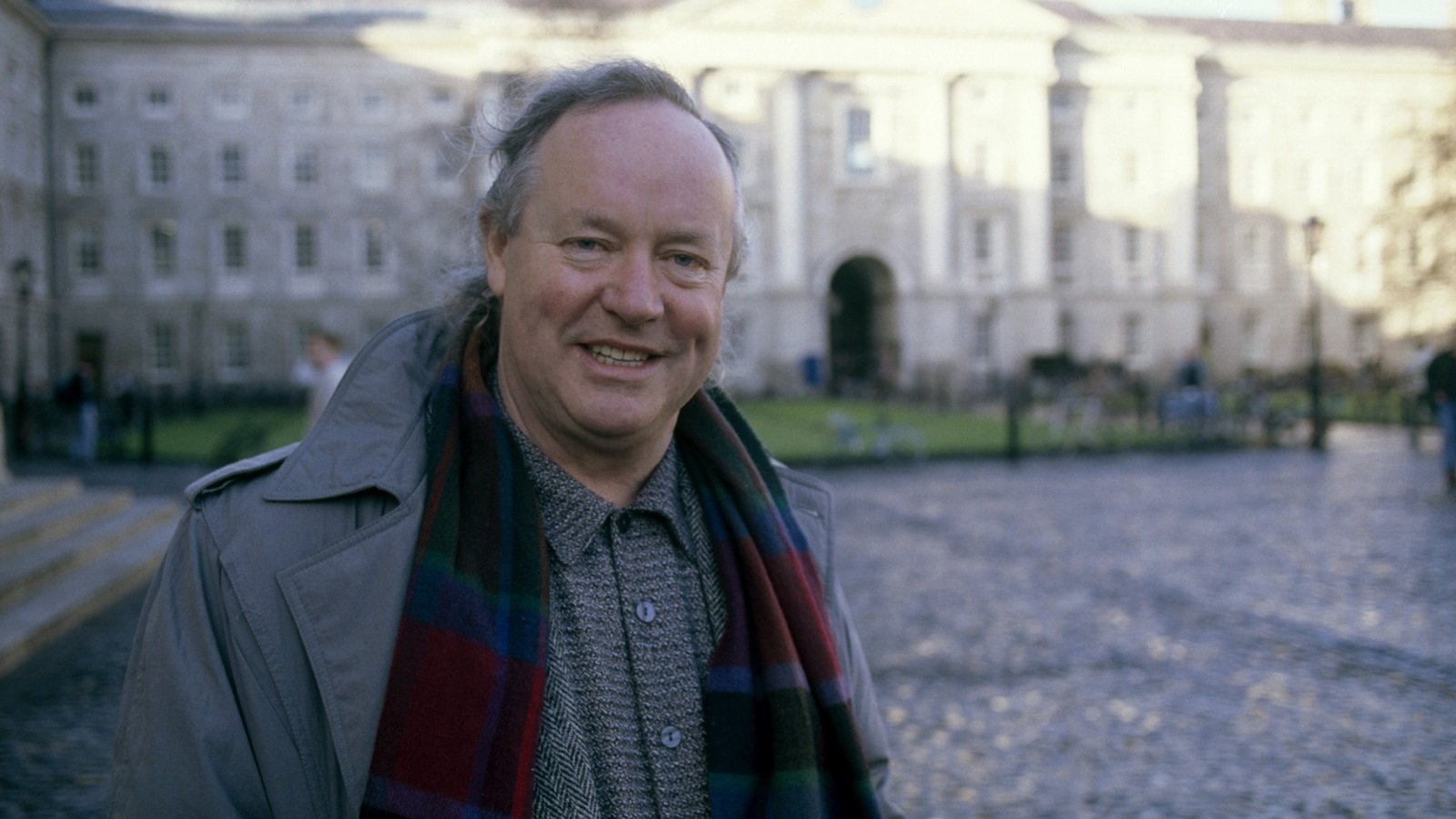17 October 2021 saw the passing of one of Ireland’s greatest creatives and academics, Brendan Kennelly. Born in Ballylongford in County Kerry, Kennelly attended Trinity to study English and French upon being granted the college’s prestigious Reid scholarship. Even during his time at Trinity as a young scholar he left his mark, assuming the editorship of Icarus and captaining the Gaelic Football Club. Kennelly returned to Trinity some years later and held the position of Professor of Modern Literature until his retirement in 2005.
Kennelly’s impressive body of work, including numerous published books of poetry, as well as plays and novels, has received widespread critical acclaim. Arguably his dedication to addressing “the nightmares of history and conscience” holds the key to his popularity as an Irish writer. Unafraid to challenge assumptions, Kennelly’s characterisation of the infamous Judas Iscariot and Oliver Cromwell in The Book of Judas and Cromwell, respectively, dauntlessly exemplifies the subjectivity of history. Both texts allow the reader to perceive two men who are largely regarded as villainous and abhorrent through a variety of different lenses, some of which serve to humanise them, inevitably causing quite the stir at the time of publication due to their groundbreaking nature.
“Brendan Kennelly’s poetry gained so much traction, both in Ireland and abroad, because people could see themselves reflected in his carefully crafted characters”
A distinctive wistful musicality underpins Kennelly’s literary legacy — as one reads his poetry, the cadences of his native Kerry reverberate. His incredible ability for storytelling only served to bring greater life to his work, with poems such as Poem from a Three Year Old, which explores philosophical questions through the characteristically accessible language of its authentic child-like speaker. I think that Brendan Kennelly’s poetry gained so much traction, both in Ireland and abroad, because people could see themselves reflected in his carefully crafted characters — there is something within the words that resonates with everybody — and it is this depth of understanding and universality that contributed to his success as a poet.
Kennelly left a lasting impact on students and staff alike during his time at Trinity, not only as a prolific writer and poet, but as a teacher, colleague and friend. Speaking to fellow colleague and Professor Emeritus, Nicholas Grene, I gained an insight into Kennelly’s formidable presence both on and off campus.
“‘Those three wonderful poets are now all gone, but I will never forget my sense of awe and excitement at finding myself in such company.’”
Grene recounts one of his favourite and most vivid moments of Kennelly: “I first met Brendan when I was still a schoolboy in December 1964 in Jammet’s back bar after the wedding of Michael and Edna Longley. He was there with Derek Mahon, Seamus and Marie Heaney. Those three wonderful poets are now all gone, but I will never forget my sense of awe and excitement at finding myself in such company. There are many more moments that I remember fondly: Brendan’s impassioned lectures on William Blake in my first term as a student; the years of our time as colleagues in the School of English including visits to him after he underwent a bypass operation, when he read to me the just composed The Man Made of Rain; the last time I saw him in the nursing home in Listowel when he was diminished but still very much himself.”
He mentions his favourite poem by Kennelly. Grene states “That is a really hard question given how much Brendan published. Like so many other people, I love his late lyric Begin, so characteristic of his sheer delight in the world. At the other end of the spectrum, there is the terrifying ballad Heigh-Ho from The Book of Judas. The book Cromwell made an extraordinary cumulative impact with its capacity to go out imaginatively to the most demonized figure in all of Irish history, its mixture of comic fantasy and confrontation with horror.”
“Brendan had the best memory for students of any teacher I have ever known.” Grene talks about the impact Kennelly had on Trinity and its faculty: “I once asked him how he could remember his students so well and he said that at night when he could not sleep he would think over each person in each of his classes. The result was that he could recall students he had taught many years before, even remembering poems he had encouraged them to write. Living in College for so many years, he was a central figure on campus, familiar to everyone around, on easy first name terms with all who worked there. No-one thought of him as a highly respected professor, a distinguished poet; he was simply Brendan.”
“One of Kennelly’s most beloved and moving poems, Begin, strikes a chord now more than ever as the country mourns one of its most resonant voices”
One of Kennelly’s most beloved and moving poems, Begin, strikes a chord now more than ever as the country mourns one of its most resonant voices. The poem not only speaks of loss and death, but also magnifies Kennelly’s unquenchable lust for and celebration of life itself, in all its fullness. I will leave you with its closing lines: “Though we live in a world that dreams of ending / that always seems about to give in / something that will not acknowledge conclusion / insists that we forever begin.”






